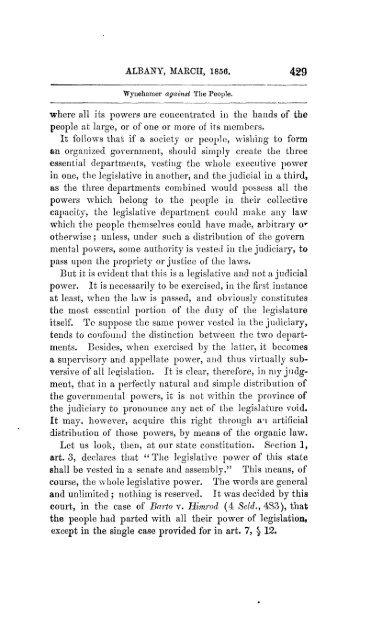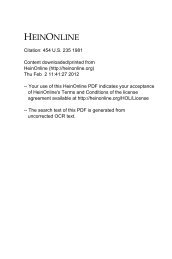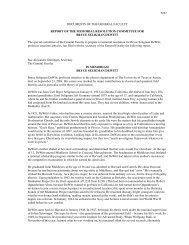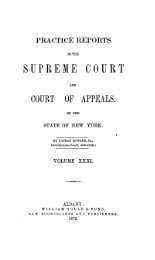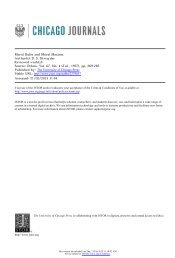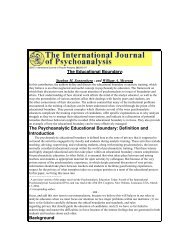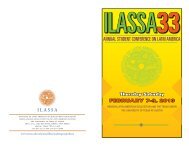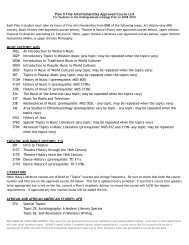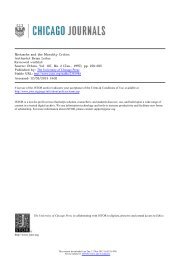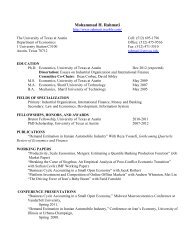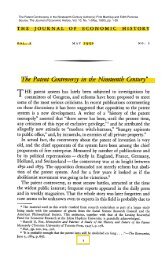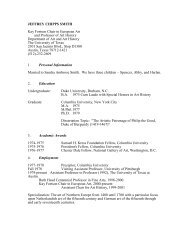Wynehamer v People.pdf - The University of Texas at Austin
Wynehamer v People.pdf - The University of Texas at Austin
Wynehamer v People.pdf - The University of Texas at Austin
Create successful ePaper yourself
Turn your PDF publications into a flip-book with our unique Google optimized e-Paper software.
ALBANY, MAECH, 1856. 429<strong>Wynehamer</strong> against <strong>The</strong> <strong>People</strong>.where all its powers are concentr<strong>at</strong>ed in the hands <strong>of</strong> thepeople <strong>at</strong> large, or <strong>of</strong> one or more <strong>of</strong> its members.It follows th<strong>at</strong> if a society or people, wishing to forman organized government, should simply cre<strong>at</strong>e the threeessential departments, vesting the whole executive powerin one, the legisl<strong>at</strong>ive in another, and the judicial in a third,as the three departments combined would possess all thepowers which belong to the people in their collectivecapacity, the legisl<strong>at</strong>ive department could make any lawwhich the people themselves could have made, arbitrary a*otherwise; unless, under such a distribution <strong>of</strong> the governmental powers, some authority is vested in the judiciary, topass upon the propriety or justice <strong>of</strong> the laws.But it is evident th<strong>at</strong> this is a legisl<strong>at</strong>ive and not a judicialpower. It is necessarily to be exercised, in the first instance<strong>at</strong> least, when the law is passed, and obviously constitutesthe most essential portion <strong>of</strong> the duty <strong>of</strong> the legisl<strong>at</strong>ureitself. To suppose the same power vested in the judiciary,tends to confound the distinction between the two departments.Besides, when exercised by the l<strong>at</strong>ter, it becomesa supervisory and appell<strong>at</strong>e power, and thus virtually subversive<strong>of</strong> all legisl<strong>at</strong>ion. It is clear, therefore, in my judgment,th<strong>at</strong> in a perfectly n<strong>at</strong>ural and simple distribution <strong>of</strong>the governmental powers, it is not within the province <strong>of</strong>the judiciary to pronounce any act <strong>of</strong> the legisl<strong>at</strong>ure void.It may, however, acquire this right through an artificialdistribution <strong>of</strong> those powers, by means <strong>of</strong> the organic law.Let us look, then, <strong>at</strong> our st<strong>at</strong>e constitution. Section 1,art. 3, declares th<strong>at</strong> " <strong>The</strong> legisl<strong>at</strong>ive power <strong>of</strong> this st<strong>at</strong>eshall be vested in a sen<strong>at</strong>e and assembly." This means, <strong>of</strong>course, the whole legisl<strong>at</strong>ive power. <strong>The</strong> words are generaland unlimited; nothing is reserved. It was decided by thiscourt, in the case <strong>of</strong> Barto v. Himrod (4 Seld., 4S3), th<strong>at</strong>the people had parted with all their power <strong>of</strong> legisl<strong>at</strong>ion,except in the single case provided for in art. 7, § 12.


